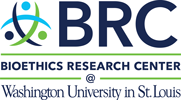Title: Rules of Data-Sharing in Collaborative and Non-Collaborative Research
Author: Adapted from a case written by Anji Wall
Description: Co-investigators plan on patenting a genetic test and want to share data with both collaborators and non-collaborators.
Keyword(s): Access to Data, Collaborative Research, Data-sharing, Data Ownership, Genetic Research, Patenting
Based On: (Shamoo & Resnik, 2003, p. 66)
Case: Funded by a small university-sponsored grant, Dr. Gabrielson and Dr. Cooper are in the process of developing a genetic test predictive of Type II diabetes. Of patients who test positive, 60% will develop Type II diabetes. Dr. Gabrielson and Dr. Cooper hope that this test will predict the risk of developing type II diabetes in children and adolescents so that the disease can either be prevented or managed at an earlier stage. If people learn about their risks for this condition, they will be able to modify their diets and exercise routines to help prevent some of the serious consequences of Type II diabetes, such as amputation and blindness. When Dr. Gabrielson and Dr. Cooper finish developing the test, they plan to patent it. In the process of developing the test, they have collaborated with several researchers at other institutions. With the test developed and ready for validation, their collaborators, in addition to other colleagues who work in their field, are requesting access to their preliminary findings.
- What are the key ethical issues in this case?
- Should Drs. Gabrielson and Cooper share their data with their collaborators? With their colleagues who were not collaborators on this project? Why or why not?
- How would your answers to the above questions change if you knew the sponsor of the research was a private company and not an academic institution?
- If Drs. Gabrielson and Cooper do share their data, what should they do to protect their work?
Source: Shamoo, A., & Resnik, D. (2003). Responsible Conduct of Research. New York: Oxford University Press.

